CBD is increasingly being seen as a potential solution to all sorts of problems, from anxiety and depression to epilepsy and psoriasis. It is also, anecdotally at least, considered to be good for helping you sleep better at night.
While CBD brands can’t legally claim that it helps cure insomnia until this has been proven by science, and until CBD has been approved as a sleep aid by the FDA or their counterparts around the world, many thousands of users have been making this claim for years.
So what is the science behind using CBD to get more zee’s, and is there any benefit to taking it in a vape rather than in oil, tinctures, or raspberry-flavored gummies?
- CBD interacts with your body through the endocannabinoid system (ECS). The ECS is a complex and not yet fully understood cell-signaling system that helps to regulate important bodily functions like mood, appetite, memory, and sleep.
- One theory is that CBD somehow prevents our endocannabinoids from being broken down as quickly as they normally would, allowing them to have a longer and more beneficial effect on things like our mood, appetite, and sleep cycle.
- You are likely to feel the effects of CBD much more quickly from vaping than from ingesting it.
- Vaping CBD, while perhaps not the easiest way to take an accurate dose, could be a good solution if you don’t like the idea of oils, tinctures, and gummies.
How Many Hours of Sleep Do We Need?
Although the recommended amount of sleep we need varies slightly between information sources, the general consensus is that adults should get between seven and nine hours of sleep per night. Sleeping for more than nine hours isn’t thought to be unhealthy, and can even be beneficial for teenagers and those who are unwell.
However, aside from how hard being tired all the time makes life in general, people who regularly get less than seven hours could be more prone to health issues, including heart disease, high blood pressure, obesity, and strokes.
Sleep quantity and quality are important to us humans and, if you are regularly struggling to get some shuteye, the idea of taking something as seemingly safe as CBD to fix it is appealing.
Can CBD Help You Sleep Better?
Data on why people take CBD reveals that around 43% do so to help with sleep problems, but while some studies suggest that CBD can be useful for managing insomnia and related sleep disorders, a conclusive answer is yet to be found. However, there is reason to believe it can help in some situations.
Stress or anxiety is often given as one of the main reasons why people don’t sleep as much as they want or need to. Research has found that CBD can activate the 5-HT1a receptors in the brain and nervous system. Because activation of these receptors has been associated with anti-anxiety and antidepressant effects, there are biologically plausible reasons for using CBD to treat insomnia caused by anxiety.
So the capacity for CBD to help improve sleep quality might not be due to any soporific (sleep-inducing) effect, but rather its ability to reduce the stress and anxiety that prevents you from falling asleep in the first place. Taking CBD isn’t likely to help if things like comfort level or environmental noise are keeping you from your nightly slumber.
With the research still lacking, even something like choosing the best dose of CBD that might be needed to help induce better sleep is confusing. Low doses of CBD have actually been shown to have a stimulating or focusing effect, the opposite of what you want when trying to sleep. Most of the studies into CBD and sleep suggest doses of less than 150mg have little or no effect on how well someone sleeps.
If you want to try CBD for any reason, it is always better to start low (25-30mg a day, for example) and build up the dose when you know your body will tolerate it well.
How CBD Interacts With Your Body
The key to how CBD interacts with your body is the endocannabinoid system (ECS). The ECS is a complex and not yet fully understood cell-signaling system that helps to regulate important bodily functions like mood, appetite, memory, and sleep.
The ECS involves three separate bodily components, each of which is essential to its functioning properly. They are:
Endocannabinoids: Molecules similar to the cannabinoids found in cannabis plants, but are made by your body as and when it needs them. Research suggests the two most important types are anandamide (AEA) and 2-arachidonoylglyerol (2-AG).
Endocannabinoid Receptors: Found throughout your body, but particularly in the brain and central nervous system, these are what the endocannabinoids interact with. The two main types are CB1 and CB2 receptors.
Enzymes: Enzymes are an essential part of the ECS. They break down endocannabinoids when they have carried out their function and are no longer needed.
Unlike the THC cannabinoid, which strongly binds to both CB1 and CB2 receptors and sends signals to the body that produce a “high”, CBD produces no psychoactive effects. While it isn’t definitively known exactly how CBD interacts with our body, research has shown it doesn’t bind to CB1 or CB2 receptors in the same way as THC. One theory is that CBD somehow prevents our endocannabinoids from being broken down as quickly as they normally would, allowing them to have a longer and more beneficial effect on things like our mood, appetite, and sleep cycle.
Vaping CBD Vs. Ingesting CBD
There are several potential pros and cons to vaping CBD rather than eating it in gummies or taking it sublingually. All are worth considering before you begin vaping CBD to help you sleep or for any other reason.
You are likely to feel the effects of CBD much more quickly from vaping than from ingesting it. When you eat a CBD gummy, it has to be processed by the digestive system before it can enter the bloodstream and start to work. Aerosolized CBD can be absorbed into the bloodstream through the lungs, a much quicker process. However, that also means that vaped CBD could leave your system faster.
One of the problems of taking CBD through a vape is that it can be difficult to judge the exact dose. When you eat a CBD gummy, you know the dose is approximately 10mg, 25mg, or whatever amount the gummies you have chosen contain. CBD drops or tincture dosages are a little more difficult to judge, but most brands clearly explain how much CBD can be expected from each drop.
Because the way people vape varies, predicting how much CBD should be contained in each puff is very inexact. How long or hard you draw on the vape, the coil resistance, the vape power settings, and even how long you hold the vapor before exhaling will vary the dosage of each puff.
Most studies into the effects of CBD on insomnia suggest a large dose is required, but exactly how much is most effective is not yet clear. Being unable to accurately control the dose of CBD through vaping could make it less useful for promoting quality sleep than other forms of this popular cannabinoid.
Calculating CBD Dose in a Vape
To work out how much CBD is in an “average” vape puff, you need to do a bit of division. As mentioned above, it’s not the most accurate way to calculate CBD dosage, but here are a few examples to give you some idea.
For a 50ml bottle containing 1000mg of CBD, divide 1000 by 50, which gives you a per ml strength of 20mg/ml. Assuming 1ml of vape liquid equals 150-200 puffs, that’s between 0.13 and 0.1mg per puff.
A 50ml containing 5000mg CBD would be 100mg/ml strength and 0.6 to 0.5mg per puff.
Choosing a CBD Type for Better Sleep
There are three main types of CBD available, and any of them could have been used in CBD e-liquids available in stores and online today.
Full-Spectrum CBD: This will contain all of the natural compounds from the plant, including some THC. To be legally sold in the United States and many other places, the THC content of CBD must be less the 0.3%.
Broad-Spectrum CBD: Broad-spectrum CBD is similar to full-spectrum CBD, but it has been through a process to remove the THC. Other natural plant compounds might remain.
CBD Isolate: As the name suggests, CBD isolate is processed in a way that isolates and retains only the CBD. Usually lacks the distinct herbal Terpene flavor of full and broad-spectrum CBD.
There has been some suggestion that the trace amounts of THC, along with terpenes, flavonoids, and oils found in full-spectrum CBD work together to increase the beneficial effects (known as the entourage effect.) Once again, more research is needed, but for users taking CBD to help them sleep, the main consideration when choosing which type of CBD they prefer will be a liking or disliking of the natural terpene flavor.
CBD Safety and Side Effects
CBD is considered to be generally safe for most users, with no psychoactive or detrimental effects known to occur regularly. A study in 2011 (updated in 2017) of the safety and side effects of CBD found that regular doses as high as 1,500mg a day can be well tolerated by humans. And 1,500mg a day is far above what most users would want or need to take. The study review states:
“In general, the often described favorable safety profile of CBD in humans was confirmed and extended by the reviewed research. The majority of studies were performed for treatment of epilepsy and psychotic disorders. Here, the most commonly reported side effects were tiredness, diarrhea, and changes of appetite/weight. In comparison with other drugs, used for the treatment of these medical conditions, CBD has a better side effect profile.”
There is the potential for CBD vape liquid to contain other less benign substances such as Vitamin E-acetate or even more of the active ingredient than advertised. However, similar concerns also surround CBD oil, tinctures, and gummies.
Always buy CBD from reputable sources and carefully check the ingredients and lab results (if available). If you are taking prescribed medications or are pregnant/breastfeeding, you should seek professional medical advice before taking any cannabinoids, including CBD.
Are Any CBD Sleep Aids FDA-Approved?
The only product containing CBD that has been FDA-approved is Epidiolex. Epidiolex contains a purified form of CBD and is used for the treatment of seizures associated with Lennox-Gastaut syndrome or Dravet syndrome, and for treating seizures associated with tuberous sclerosis complex.
That means that despite CBD vape liquids, tinctures, and gummies being sold with the claim to “help you sleep better,” there are currently no FDA-approved CBD treatments for insomnia, anxiety, stress, or any of the other problems people commonly use CBD to relieve. Aside from Epidiolex, no CBD product available in the United States is authorized to make claims of having medical or therapeutic benefits.
The Bottom Line
While the jury is still out on the efficacy of CBD as a sleep aid for everyone, there is growing evidence that it can help some people get a better night’s sleep. The proven lack of risks of using CBD means that there is little to lose in giving it a try. Vaping CBD, while perhaps not the easiest way to take an accurate dose, could be a good solution if you don’t like the idea of oils, tinctures, and gummies.


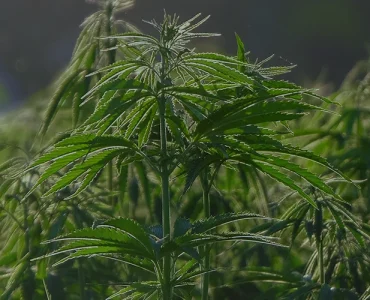
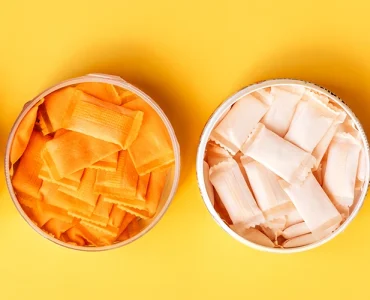
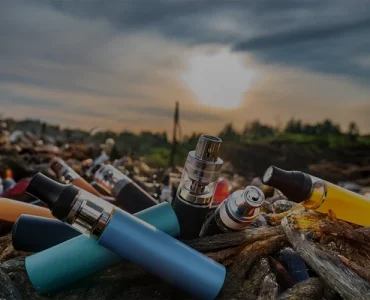

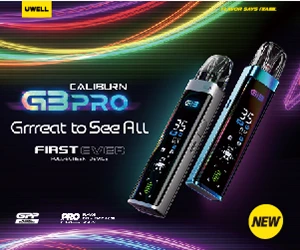
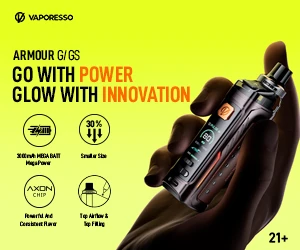
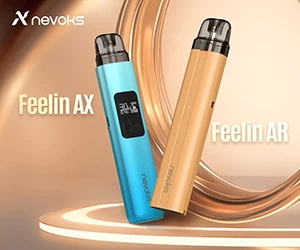
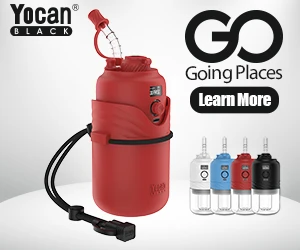

Add comment